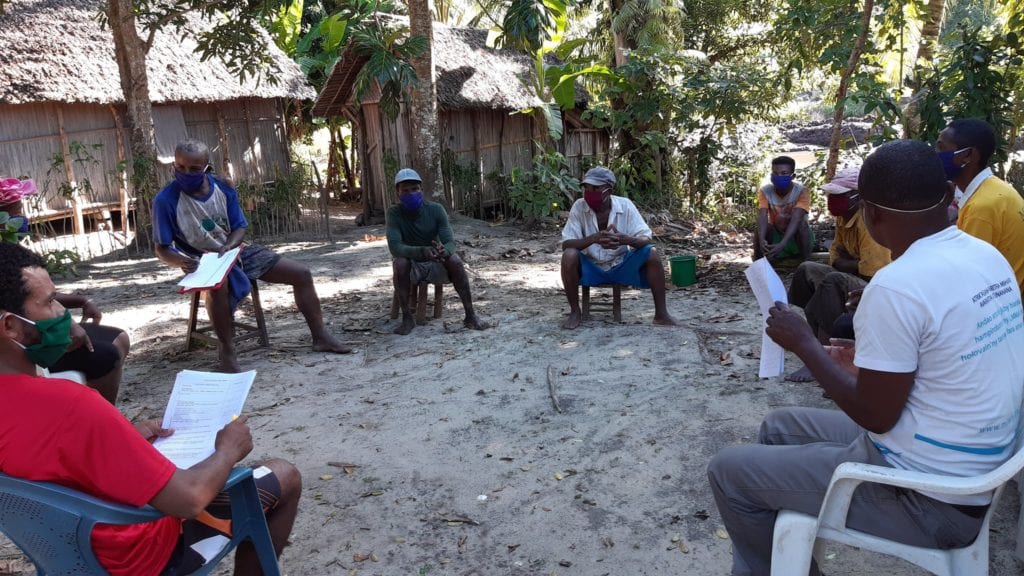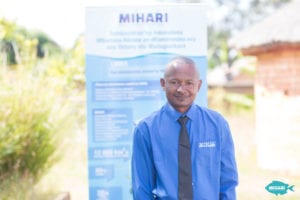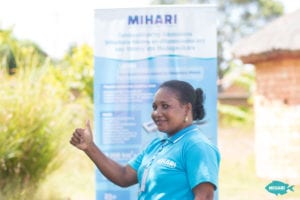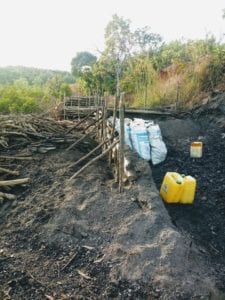June 10, 2020, 19.25 PM (GMT+3). The global toll of Covid-19 is heavy: 7.379.71 cases and 415.481 deaths. Madagascar is no exception to this worldwide health context and announced 1.162 confirmed cases and 10 deaths.
Health measures have been taken by the government to limit the spread of the virus. The state of health emergency on the entire territory of Madagascar was declared on March 20th, 2020 and the confinement was assigned to the population of the three most affected regions, including Atsinanana, Analamanga et Haute Matsiatra.
Following the confinement measures applied in these three major regions, travels were limited. It is a slowdown or even a termination of many activities in various sectors. The fishing sector has not been spared. Communities of fishermen working with MIHARI declared themselves in difficulty. With an open heart, some fishermen share their stories with us.
Amode (Antanambe, Mananara Nord, Madagascar), “ I stopped fishing ”
“ My name is Amode, and I am a member of the LMMA Tsiverizara in Mananara district. The ocean keeps me alive: it feeds me and I earn money from it. I sell everything I catch to collectors, who are interested in fish, without distinction of species: tuna, parrot, mackerel, octopus, etc. They arrive from Soanierana Ivongo (three hours by boat) or Maroantsetra (five hours by boat). From time to time, my wife and I make salt-dried fish for local sale and for food, to anticipate periods when fishing is not favorable, when the winds are strong. I heard that the country is in a state of health emergency when I was listening to the radio. It shocked me. I cannot fish anymore because of the curfew. And seafood collectors don’t come here anymore. I had to put my fishing activities on hold. Fortunately, I grow cloves and rice a little farther from my village, which can help me while waiting for the crisis to end ”.
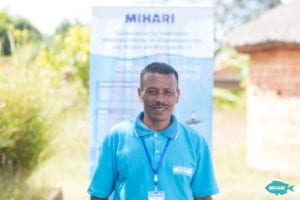
Freddy (Maintimbato, Maroantsetra) “ I only fish for my family’s consumption ”
Freddy Velondraza, regional president of MIHARI lives in Maintimbato, in the North-East region, in Baie d’Antongil. “ Since the crisis, I have been staying home. To contemplate the ocean. I know that I won’t be able to go there for a while. Now, I only fish for what my family and I need for food and I sell the rest, if there is any. Selling is no longer as interesting. Prices have plummeted: a pile of fish sold for 10 000 ariary previously, now only sells for 5 000 ariary. The fishmongers also ceased their activities ”.
Tsiady Patricia (LMMA Fénérive-Est) “ I have changed my habits ”
“ My husband used to go to sea at night, so do all the fishermen in the area. In the morning, women usually take care of the sale. Since the curfew, he no longer goes to sea and we currently live off our savings, and we limit our outings. Life has greatly changed. We are forced to avoid family visits and meetings, and even funeral times are shortened ”.
Stories like many others, which illustrate the challenges of fishermen communities to get out of their routine during times of crisis. Periods that are comparable to cyclonic seasons. For the case of Morondava and Analalava, fishermen barter to ensure their survival. Fish are exchanged for rice. Others go to pawnbrokers in order to buy food because of inflation, because in many regions, inflation is among the first consequences of all kinds of crisis.
Nature is also suffering!
In LMMA areas, which are fishing zones intended to be well managed, biodiversity pays a high price during disasters. In the absence of control, fishermen dare to use illegal fishing gears such as mosquito nets. Other members of the “Fokonolona” even venture out to sea to tap into what is supposed to be “a common good” and come out unsanctioned, because only fishermen are subject to local regulations- The dina.
The massive arrival of migrants to cut mangrove for making charcoal has been seen in the Bay of Ampasindava, Ambanja. A fishmonger has even declared that she sells them more during this period, and that her activity has never been so successful! She takes advantage of the low price of fish to the detriment of fishermen, who must increase their fishing effort to have the same price as before. And the longer the health crisis continues, the greater they have to catch.
For a more resilient community, able to cope with changes
Aware of the urgency of the situation, the MIHARI network wants to alert the authorities in charge of fishing, the environment and the population to have more consideration for the cases of fishermen. Among the most vulnerable, fishermen are very sensitive to changes. This overview of the on the ground realities in this unprecedented health context for Madagascar will help the network members to better prepare for other disasters. Together for more resilient communities!
[In French] Read our report on Impacts of the COVID-19 pandemic on the small-scale fisheries sector in Madagascar.

